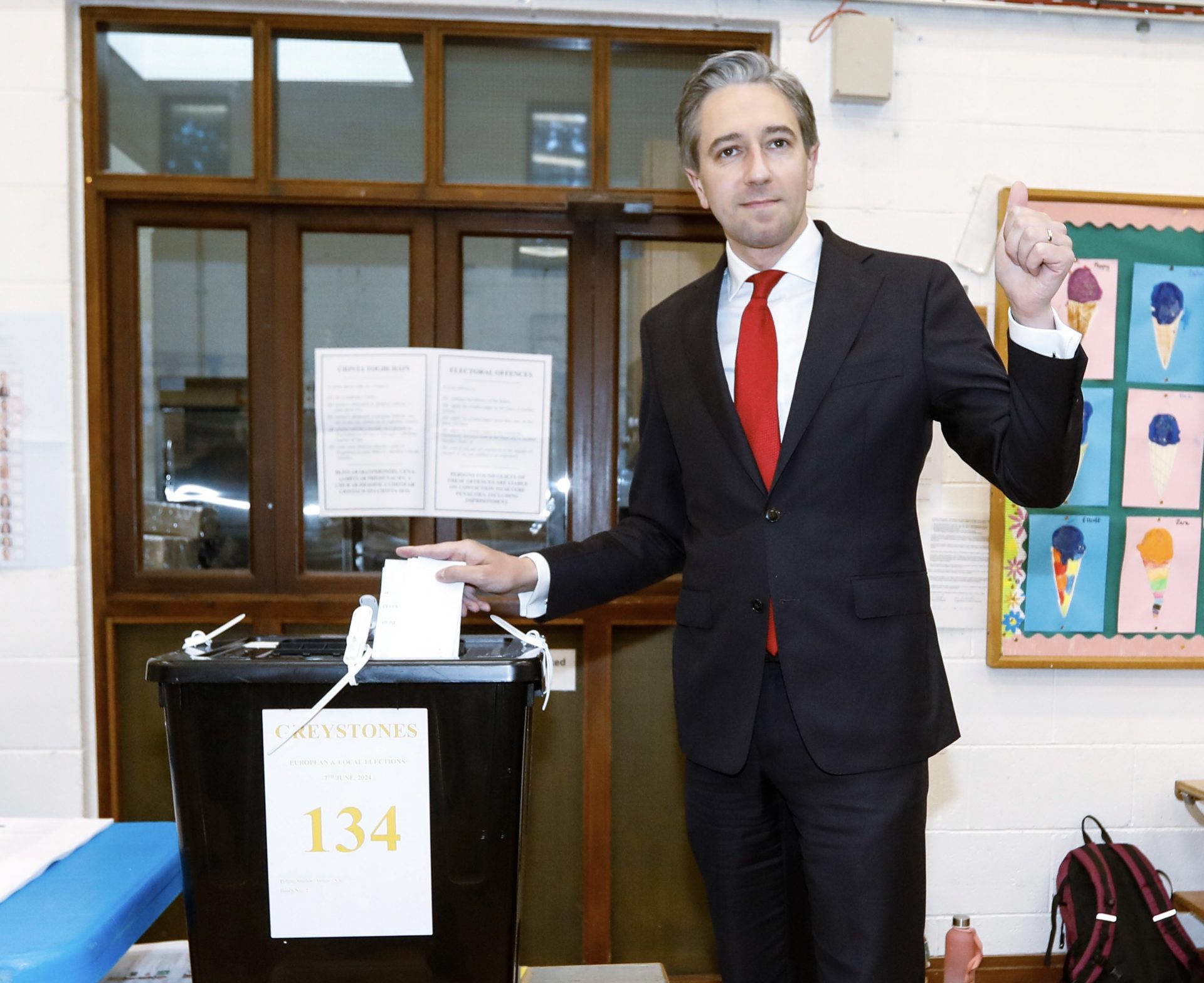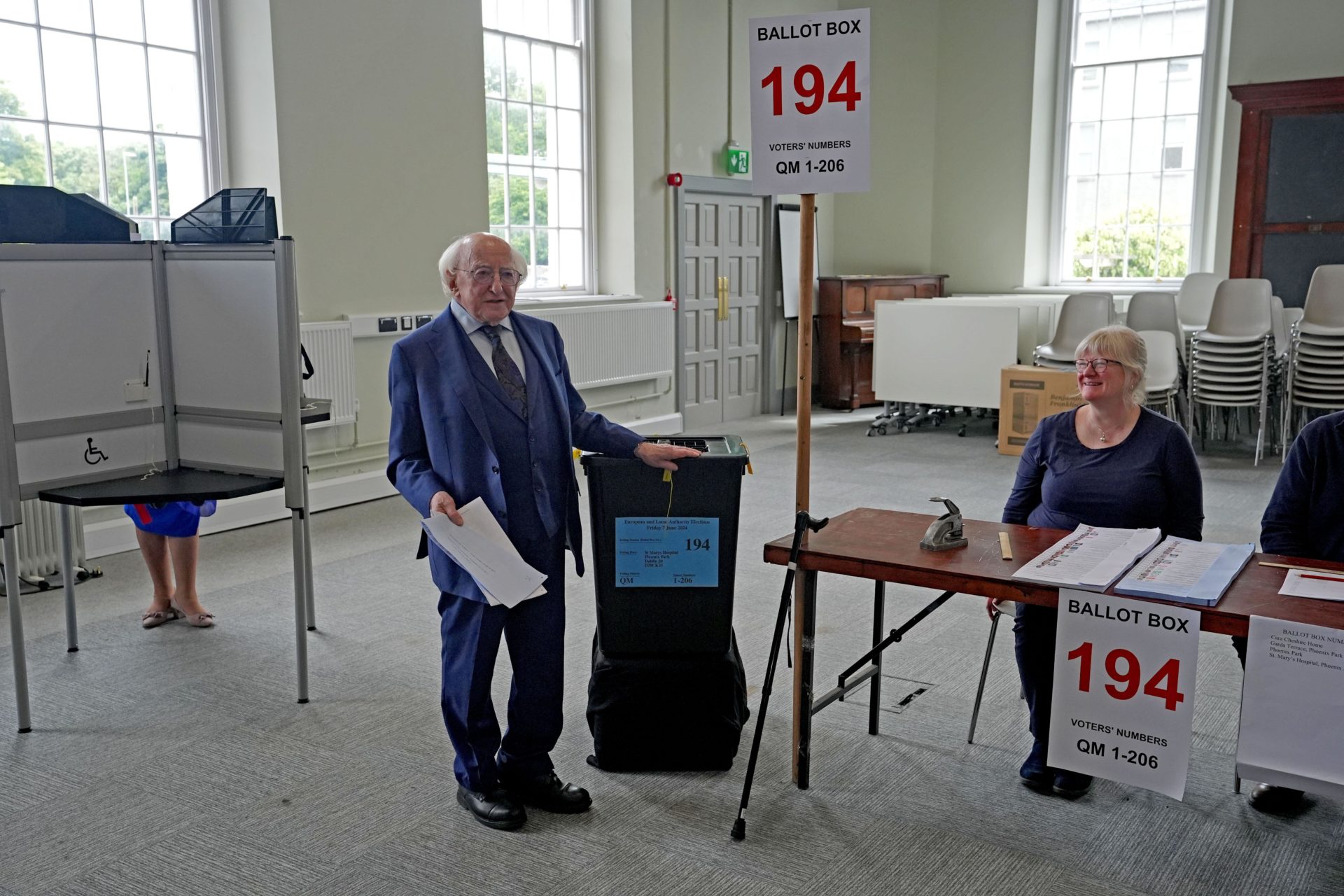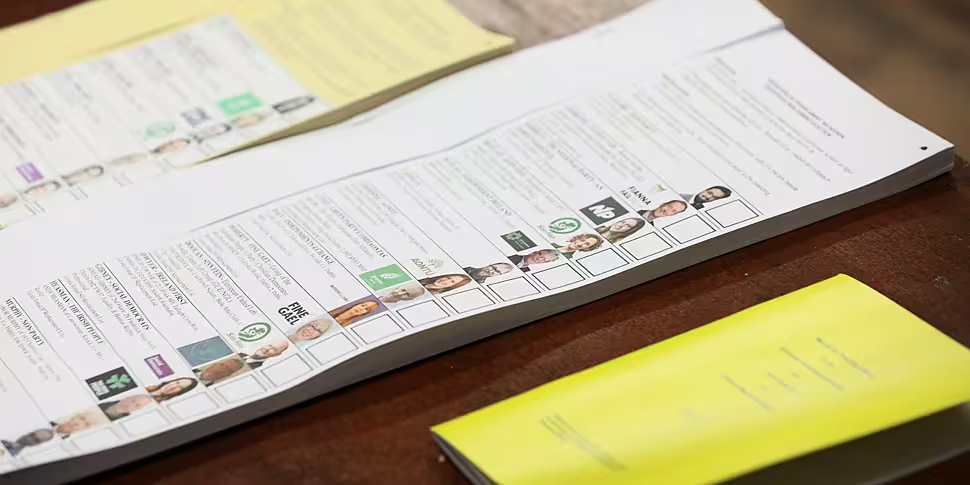Voting in the local and European elections concluded at 10pm last night – but it will be some time before we know what people chose.
Some 949 successful candidates will prepare to fill their seats in one of 31 local councils, while 14 newly elected MEPs will soon head to Europe.
With high numbers of candidates – including a 28-inch ballot paper for the Midlands Northwest constituency – counting is going to take its time.
After the count
Before the actual count can take place, ballots must be separated and verified – although there will be early signs of candidate performance.
From 9am today, staff will count ballot papers to ensure no extra ballots have been added and no votes have been removed.
Counters must also separate papers for local and European elections. Counting for local elections begins today while the race to Europe won’t begin until tomorrow.
 Taoiseach Simon Harris voting at local and European elections in Wicklow, 07/06/2024. Image: Leon Farrell / © RollingNews.ie
Taoiseach Simon Harris voting at local and European elections in Wicklow, 07/06/2024. Image: Leon Farrell / © RollingNews.ieOfficial counting for local elections won’t get underway until this afternoon.
Counters first begin by organising ballot papers based on their first preferences, which are measured by ‘tallymen’.
These initial tally counts are typically shared online soon after they're counted. This will give voters their first taste of how their candidates have performed.
A constituency’s quota will then be calculated based on the number of valid votes divided by the number of seats available, plus one.
Any candidate who already passes the quota on this first count will have ‘topped the polls’ and earned a seat. But with a laundry list of candidates in most areas, victory this early is unlikely.
Instead, the first few rounds of counting will likely largely consist of eliminating candidates in most areas.
Counting local elections
Elections expert Professor Gary Murphy estimated the “vast majority” of local election results will be announced by this evening.
Ireland’s electoral system - Proportional Representation by Single Transferable Vote (PR STV) - makes governments more representative. It also makes election counting more complicated.
"Because of the number of candidates, the number of preferences a voter can give, and in the European elections, the sheer size of the constituencies, [this] tends to ensure relatively long counts in comparison to first past the post systems," Prof Murphy said.
When a candidate is elected, their surplus votes will be divided proportionally to the next preferred candidate on the ballot paper.
The distribution is calculated by dividing the number of surplus votes by the number of first-preference ballot papers from the winning candidate. This is then multiplied by the surplus votes and awarded to the respective candidates.

If no one is elected after a round, the least successful candidate is eliminated, and their votes are redistributed accordingly.
This complex counting process continues until enough candidates fill the available seats.
A former returning officer for local elections emphasised that “accuracy” is much more important than speed in counting.
“I can honestly say in my existence that I never looked at a time other than deciding when we need to go home,” they said.
In previous elections, staff may be counting up to 2am if they expect a winner that round.
“It’s important to recognise it’s all about the candidates – for someone to put themselves forward as a candidate, it’s really important that every correct vote is put to that candidate.”
European elections
Counters cannot call European election results until 10pm tomorrow when all EU countries have concluded voting.
The count will begin tomorrow morning in Ireland’s three European count centres in Dublin, Mayo and Cork.
 07/06/2024 Dublin, Ireland. Local and European Elections 2024. Photo shows: Michelle O’Hagan with her dog Fiachra at the polling station in Youth Reach Training Centre, Portobello. Photograph: Sasko Lazarov / © RollingNews.ie
07/06/2024 Dublin, Ireland. Local and European Elections 2024. Photo shows: Michelle O’Hagan with her dog Fiachra at the polling station in Youth Reach Training Centre, Portobello. Photograph: Sasko Lazarov / © RollingNews.ieSome 23 candidates are running in the South constituency, 27 in Midlands Northwest and 23 in Dublin.
According to Prof Murphy, the optimistic expectation is the first count will finish by tomorrow evening and will continue into Monday morning.
In 2019, for example, voting in the Midlands Northwest finished after four days - and five years later, it will take even longer.
Watch out for recounts
Prof Murphy warned, however, the “dreaded demand for a recount” by candidates could delay election results.
Candidates can call for a recount of any particular round, although the returning officer does not have to grant it.
The worst-case scenario, Prof Murphy said, is if there was a full recount of all the first preference votes. In that case, we return to square one.
Recounts are not common here unless a returning officer discovers a significant error that could change results completely.
Limerick mayoral election
Limerick also made history yesterday as people voted for Ireland's first directly elected mayor.
History won't officially be made, however, for another few days as counting does not begin until Monday.
Counting for local elections must take place before one of the 15 mayoral candidates wins.
With no opinion polls conducted, there's no crystal ball for Limerick voters to guess their first directly-elected mayor.
Businesswoman Helen O’Donnell and former Department of Finance Secretary General John Moran are currently the reported favourites to win.









